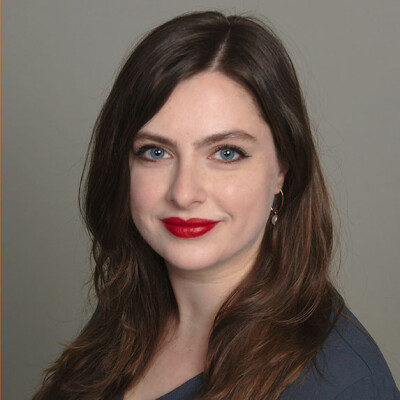Doran finds perfect fit teaching musicology, piano at Wartburg
November 19, 2021
By Alexa Ganzeveld ’22
Meet Dr. Molly Doran, new assistant professor of music at Wartburg!
WHAT DREW YOU TO WARTBURG: I went to a small liberal arts school in Michigan for my undergraduate, and I really loved that type of atmosphere. Liberal arts colleges are perfect for students who are taking a variety of classes and are curious and interested in a range of topics. When the opportunity came along, I thought it would be a good fit, and Wartburg was looking for both a musicologist and somebody who could teach piano, which is my exact background.
WHERE DID YOU TEACH BEFORE COMING TO WARTBURG: I was a teaching assistant during my masters at Bowling Green State University in Ohio. I did a lot of teaching at Indiana University in the Jacobs School of Music during my Ph.D. My favorite class that I taught there was Women in Music, which was for graduate students. Later, I ended up moving to Rhode Island, and I was teaching as an adjunct faculty member at Northeastern University in Boston.
WHAT ARE YOUR SPECIALTIES WITHIN MUSIC: I’m interested in trauma studies and bringing that to the field of opera studies and 19th century music. Thinking about women’s history and suffering, specifically in France, is my area of expertise and then how that is represented or played out in operas from that period.

WHY WERE YOU DRAWN TO THE PIANO AND OPERA: First, I was a pianist. I started when I was very young with piano and just continuously took lessons as a young child. I studied piano during my undergraduate studies, and that is when I became interested in music history. I ended up pursuing a master’s in music history at Bowling Green University. I really got into opera because my younger sister was an opera student and still sings opera. She got me into thinking about operas and watching operas with her, and I totally fell in love with them. I ended up doing my master’s thesis on the 19th century opera Eugene Onegin by Tchaikovsky.
WHAT WAS YOUR DISSERTATION TOPIC: I was obsessed with opera long before the dissertation, and I knew I wanted to do an opera-related dissertation. I eventually realized I wanted it to be something that was feminism in its lens and methodology. Almost a decade ago, I saw a production of Faust, and it was set in the nuclear age in the 20th century. The opera centers on a woman named Marguerite, her damaged psyche, and the trauma and suffering that she was experiencing. The production struck me as a very interesting way of presenting that opera and shedding light on its history in an interesting way on women’s subjectivity in a way that I hadn’t seen before. I wanted to think more about how staging can engage history and women’s history today and that’s what really sparked the dissertation topic.
WHICH CLASSES WILL YOU TEACH: I will be teaching Music History one, two, and three; the early classical and romantic music classes; and the 20th-century history classes. I’m teaching Applied Piano right now, and I will likely be teaching group classes in the future as well, in addition to independent studies in music and other history related classes.
WHAT ARE YOU MOST EXCITED ABOUT AT WARTBURG: I was excited to join Wartburg because of the music therapy program. I also do a lot of work on music and trauma from a musicological and historical perspective, so I was excited to learn more about the clinical side of music therapy.
